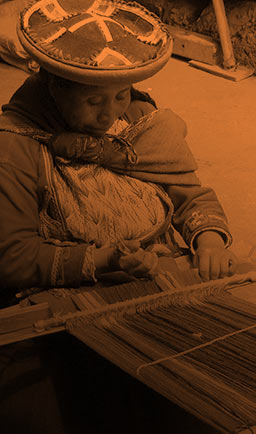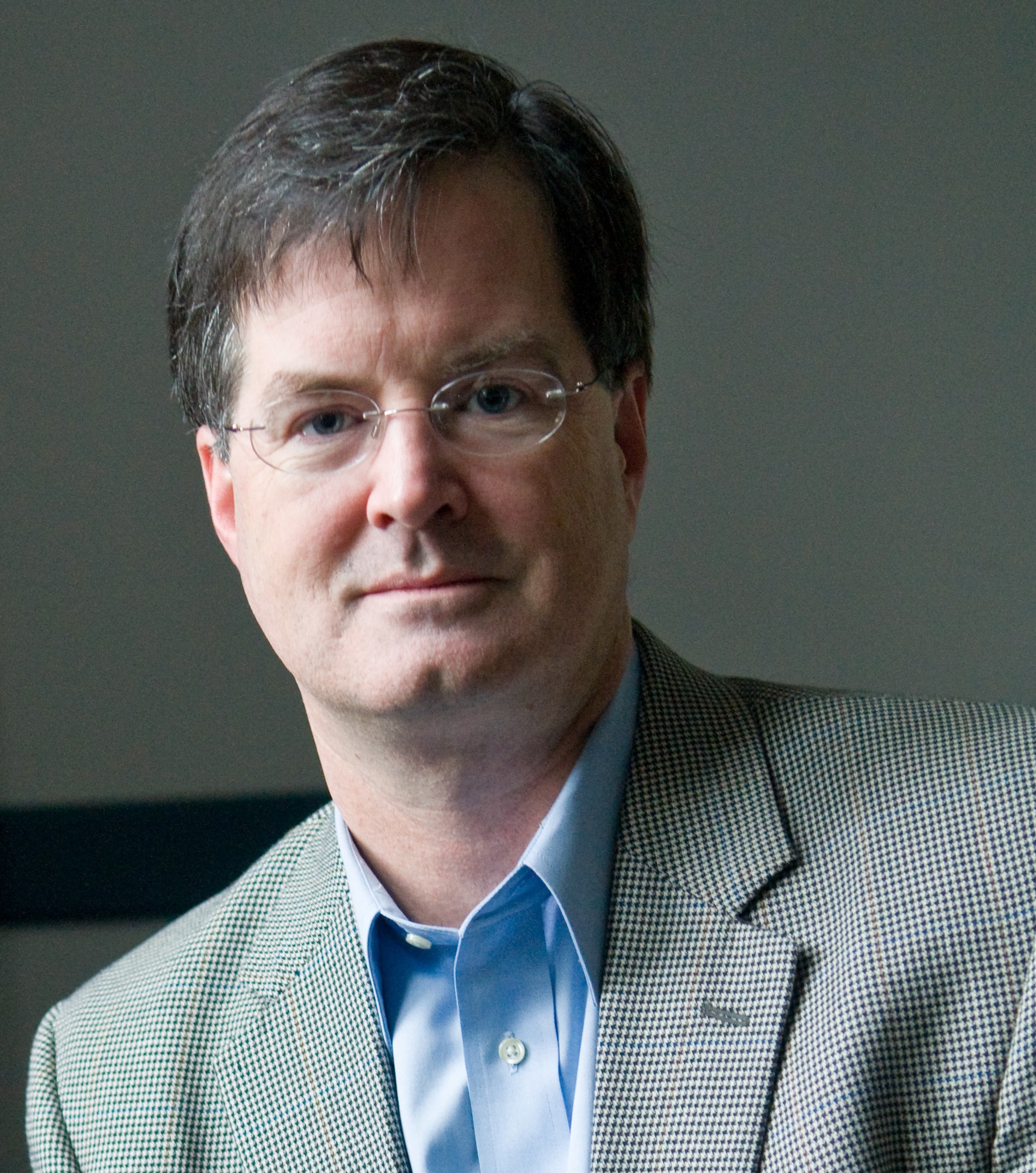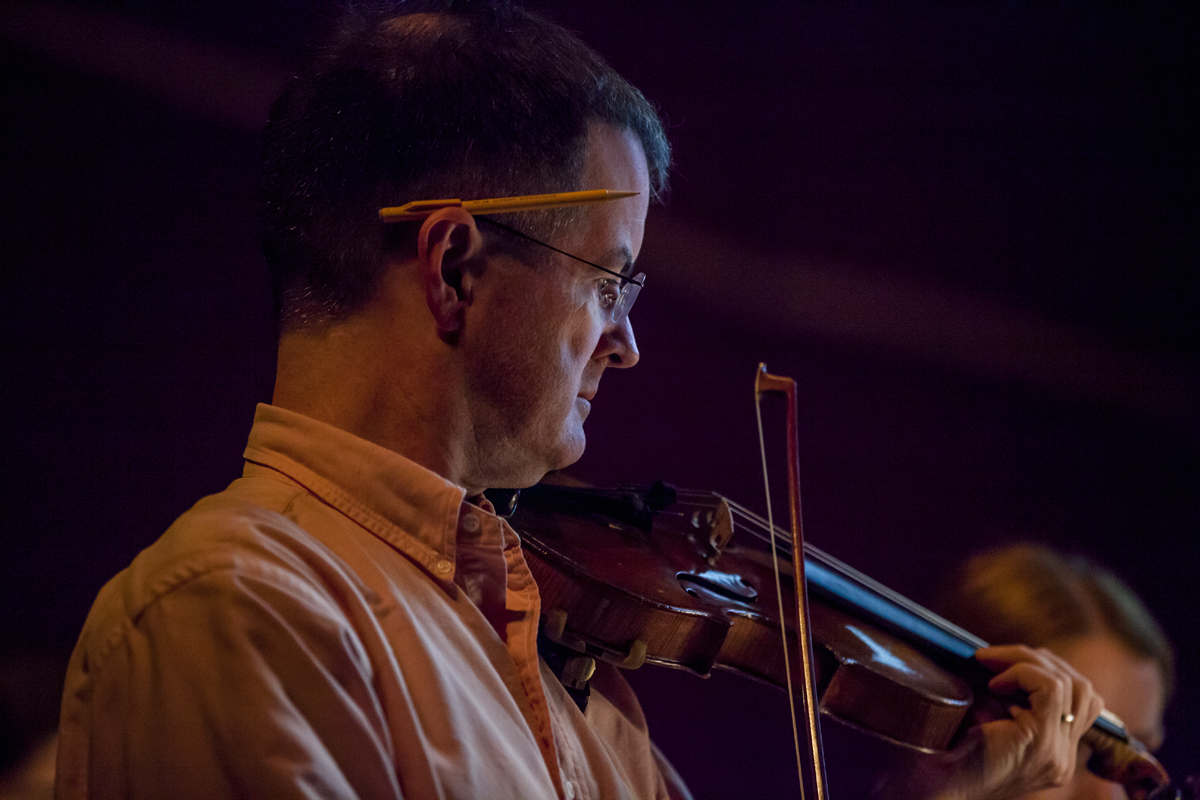Martindale Center names new executive director

Watkins led a group of students to study the microfinance industry in Honduras. As the new executive director of the Mardindale Center, he wants to resurrect the microfinance program as well as ramp up a family-business research program.
Economics professor Todd A. Watkins has been named executive director of the university’s prestigious Martindale Center for the Study of Private Enterprise. He is only the second person to lead the center since its inception in 1980.
Watkins, who has a deep interest in international and economic matters, was the founding executive director of the Baker Institute for Entrepreneurship, Creativity and Innovation. He also co-founded the Integrated Product Development (IPD) program at Lehigh. He has served as principal adviser for dozens of entrepreneurial startup companies as well as international, development-oriented organizations started by students.
Watkins received his bachelor’s degree in optical design from the University of Rochester and his master’s and Ph.D. in public policy from Harvard University. His research and teaching have focused on the intersection of innovation, entrepreneurship, public policy and economic development.
In an interview with the Office of Communications, Watkins talked about his vision for the Martindale Center, which advances scholarly programs to increase the understanding of both the U.S. and global economies and their relationship to one another.
WHAT APPEALED TO YOU ABOUT THE MARTINDALE CENTER? WHY THIS NOW?
The timing was right. I’d been ramping up the Baker Institute for a lot of years, and I’ve been running the entrepreneurship program for a decade or so. I love what we’ve built there. Yet I’ve always had an interest in international and economic policy issues. Martindale is squarely aligned with those core interests, and it’s a great program. It’s one of Lehigh’s gems.
IT WAS ONE OF THE FIRST PROGRAMS TO BE MULTIDISCIPLINARY, CORRECT?
Rich Aronson [who retired as Martindale director] can claim really two big firsts. Martindale has always been multidisciplinary in nature, embracing an all-campus viewpoint, but also it was global before global was cool.
YOU WILL BE ONLY THE SECOND MARTINDALE DIRECTOR SINCE ITS INCEPTION IN 1980. WHAT IS YOUR VISION FOR THE PROGRAM?
Rich’s shoes are impossible to fill. We just have to hope we can do justice to that legacy by moving it forward and playing to the strengths that we’ve developed. We have a really good solid foundation for strengthening global programming across the university. There’s a lot going on. I see us as focusing on research and student and practitioner engagement on global business and economic development policy.
We’ll be ramping up a family-business research program. There are a lot of businesses that are owned by stockholders, shareholders etc., but there are many large and midsized businesses that are dominated and owned and run by families. Walmart is a classic example of a family-owned business. They have interesting challenges, transition issues and board issues that are somewhat different than companies that are owned and managed by professional investors and managers. A bunch of them are founded by some dynamic entrepreneur, and then what do you do when she or he’s about ready to retire? Who’s on the board? How do you make decisions when the family really owns everything?
We have some Martindale well-wishers who have run and engaged in family businesses, and there’s not much central data around the world in family businesses. We have faculty here at Lehigh who have started generating potentially a world-leading database in how family businesses operate and how they work. We hope to roll that out and ramp that up. That’s a new initiative.
Secondly, we were very engaged in microfinance – financial services for the poor – in developing economies around the world. We had a robust microfinance program a few years back that was driven by me largely. We went to Honduras, Peru, Ghana, Zambia. As I became more involved with the Baker Institute, that atrophied a bit. I still teach a course in it, and I’m writing a book on it. But I’d like to resurrect those activities, and more broadly, sustainable development. I’d like to see us really be the place at Lehigh that investigates and engages faculty and students in business issues and private enterprise issues in developing economies.
WHAT WON’T CHANGE?
I don’t see any huge changes in the core Student Associates program [students travelled to the Czech Republic this summer]. It’s a flagship program for Lehigh. For the Martindale Center, it’s what has been exciting our alumni base. Each year we pick some of Lehigh’s absolutely best students, explore global business and economic issues deeply in a different country and publish a journal of students’ original articles on it. It’s a great program. We love it; students and alumni embrace it. So no thoughts about doing anything except strengthening and keeping it vibrant.
Our strong belief is that private enterprise is an interdisciplinary endeavor. We really want to be a university-wide resource and a university-wide magnet, that we’re drawing faculty and students from all corners. I hope we don’t change that approach, that vision.
AND YOU’LL CONTINUE TO TEACH?
Oh yeah. I’ll teach more than I was in the last several years. It’s a huge part for me of what’s most joyful about being at Lehigh.
CAN YOU TALK ABOUT YOUR MICROFINANCE AND STUDENT ASSOCIATES TRIPS?
I’ve been on 30 or so study-abroad trips with students, between various programs, many of them with Martindale but many of them were my own microfinance trips and in a course we call International/Social Entrepreneurships. Most of them have fairly short immersion trips, 12 days, 10 days, which is enough time to scratch the surface of a place but not really fully dive in, so almost all of them also have been built around longer-term engagements. I’m a little hesitant to just take a trip somewhere and then forget about it…. Most or all the trips I’ve been involved with have students working on some sort of real project, a research paper, a technical development for a microfinance organization, a consulting engagement with a social nonprofit somewhere in a developing economy. So they’re working on it for months and months either before or after a trip or both, where they get exposed [to issues] by going to a country, they interact with people, they interact with their client organization, they interview for their research or try out some prototypes, and then they come back and continue working on the problem.
HAS THERE BEEN A TRIP THAT STANDS OUT?
That has the risk of making all of my students sad that theirs wasn’t the best one. (laughs). That’s such a hard question. One of the wonderful things about the Students Associates program is that it’s highly selective. And so we have many more applicants than we can pick. The applicants have to already have been recommended by faculty or have just outstanding records at the university to be even eligible. Our ability to just pick and choose the most dynamic students on campus and then work with them for a year on some publishable research article on a topic in a really interesting place in the world, that’s pretty fun. It’s hard to beat that as a gig for a faculty member – work with the best students on campus, go to interesting places that have really hard problems, such as Greece. I wasn’t on the Greece trip but what a place for Martindale to have dug into recently.
We were in Iceland right after it had a huge financial crisis, and there happened to be a volcano that went off while we were there. So things like that make it very memorable. Picking a specific country, that’s really hard. Colombia comes to mind simply because we had such wonderful Lehigh alumni connections in Colombia. Several Lehigh alums live down there and helped us put together a wonderful trip. The Ireland trip many years ago comes to mind because we met two former Taoiseachs, which are essentially the prime ministers of Ireland. We had an alum who was in part responsible for helping build the Northern Ireland peace process. He was able to plug us into a network of high-powered folks, including these two former prime ministers.
DO YOU KNOW WHERE THE STUDENT ASSOCIATES WILL TRAVEL TO NEXT YEAR?
No. Generally we’ll meet as a faculty group early August, the first week of classes to thrash out where we want to go. We certainly have a short list. We haven’t pulled the trigger.
ONE OF YOUR PASSIONS IS THE VIOLIN, WHICH YOU HAVE BEEN PLAYING SINCE YOU WERE IN THIRD GRADE. YOU ALSO PLAY THE VIOLA. TELL ME ABOUT YOUR MUSIC.
It’s an escape, really, a way to force me regularly to let my head focus entirely on something different. I play with the Lehigh University Philharmonic. My two kids were in it this year too. So all three of us; first time we’d been on the same stage rehearsing and performing together, which was a special treat. My older son, who just graduated, is a cellist and pianist. He was orchestra president for the last two years. And the younger one, a rising sophomore, is a violist and plays percussion as well. I’ve been doing it forever. I’m saddened when kids who play some instrument graduate from high school and college and never get back to it, and there are plenty of opportunities for adults who are not professionals to keep going. I’ve been blessed by having the Zoellner [Arts Center] and the Lehigh Phil available, and really can’t thank enough the Zoellner folks and the wonderful music department for all they’ve done for me, my family and the whole community.
Posted on:



